Are There Natural Pre-Workout Supplements?
Author:
Unlock your full potential by engaging with our experts and community! Have questions about your fitness journey or looking for expert advice on weightlifting techniques? Don’t hesitate — leave a comment below and Oleksandr Maksymenko will provide a personalized answer and insights to help you reach your goals.
Torokhtiy is reader-supported. Some links are affiliate links, and we may earn a commission at no extra cost to you. See our disclosure page for details.
A pre-workout supplement can give you the boost you need to get the most out of your workout, but what happens when you want a natural option?
A lot of people are turning to natural supplements to improve their performance without the synthetic ingredients found in many commercial products. Natural pre-workout supplements can include different ingredients, like caffein from green tea, beetroot juice, beta-alanine, and BCAAs.
If that sparked your interest, keep reading to learn all about natural pre-workouts, and how to choose the one that will work for you.
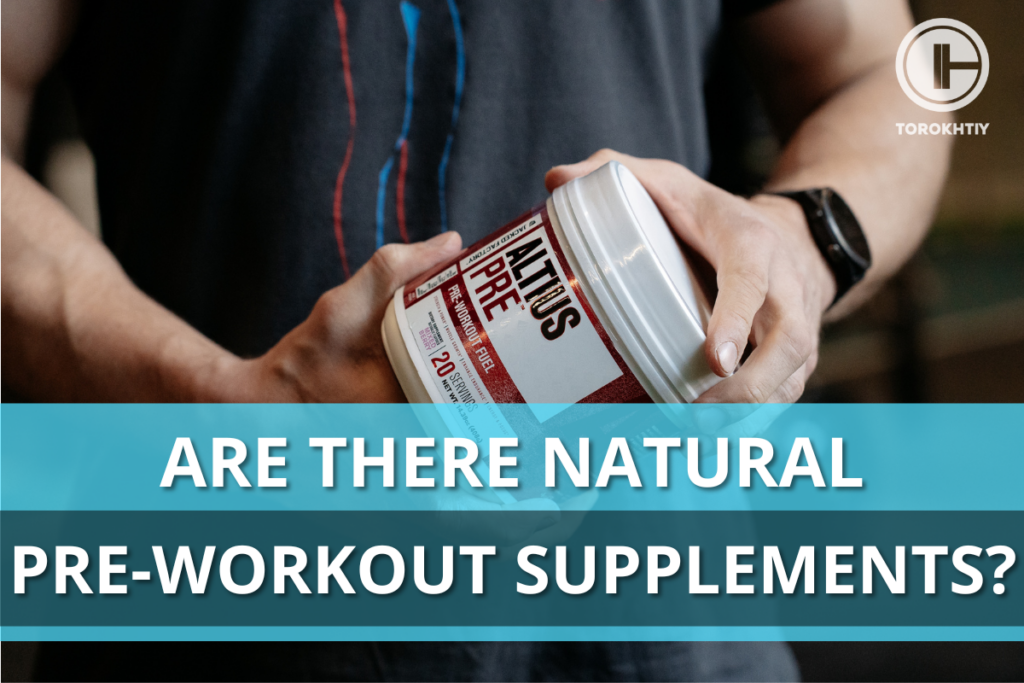
What do we mean by “natural” when we talk about the best natural pre-workout, and is it even possible to find such products on the market? What are the key things to look for and should you really avoid any supplements that contain added ingredients of non-natural origin?
And what about organic pre-workout? Does it have real advantages over its competitors? Find out the answers in this review.
Are there natural pre-workout supplements?
If you don’t want to read about the general concept of “naturalness” and just want to get a stimulating boost from caffeine, you can simply drink coffee as a one-ingredient pre-workout with no additional ingredients. However, keep in mind that it is very difficult to calculate the exact dosage of caffeine that you will get from the drink.
We only have average values, although there can be a considerable range in the actual caffeine content.
For example, a 250 ml cup of brewed coffee can contain between 40 mg and 110 mg of caffeine. A cup of 250 ml of instant coffee can contain from 12 mg to 169 mg of caffeine. Therefore, if you need a specific dose of caffeine, it is better to take it in the form of capsules (for example, No-Doz) or as a part of pre-workout.
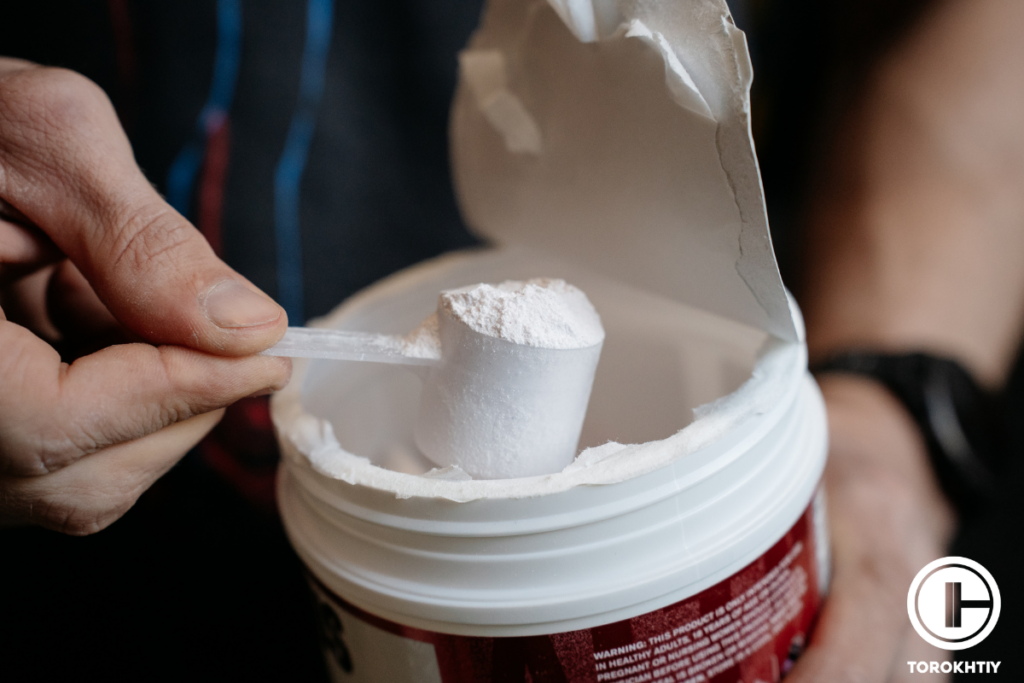
If you want more than just caffeine and still want to choose your pre-workout, read on.
Very often, people perceive something unknown or something that has a “chemical” name as definitely unnatural and dangerous. For example, silicais found naturally in the environment, and if you do not inhale air containing small particles of silica dust, you have no reason to worry.
As for sodium citrate, it is even allowed as an ingredient in products labeled as organic.
Keep in mind that there is still no formal definition for the use of “natural” on food labels. However, many people believe that “natural” is always beneficial for health, while “artificial” or “chemically synthesized” is dangerous.
The truth is that everything in our world is made up of chemicals, even our bodies! In fact, some naturally occurring plant components used in dietary supplements can pose serious risks to our health. Therefore, “natural” is not always safe and beneficial, and “artificial” or “chemically synthesized” is not always toxic or dangerous.
Even plain water can lead to life-threatening conditions if you drink a huge amount of it in a short period of time!
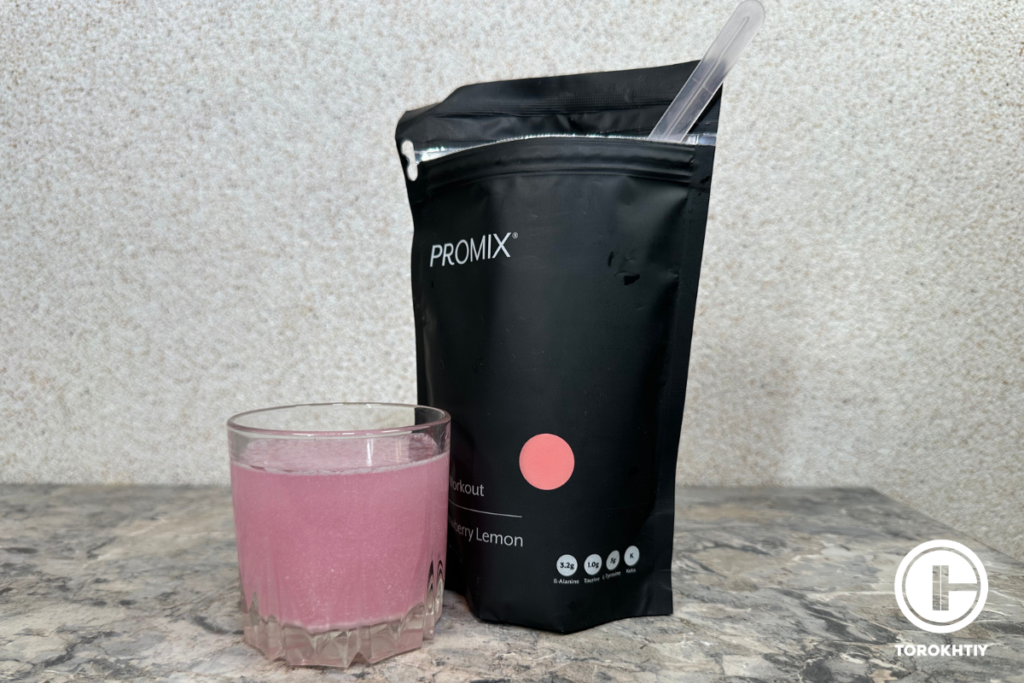
Also, the very fact of avoiding all artificial and “chemically synthesized” and yet willing to take multi-component pre-workouts seems a bit funny. At the end of the day, we cannot predict the effect of a specific product on a specific person. Just look for reviews on Amazon of any pre-workout, including those that are marketed as “natural”.
You will easily find reviews like “This is the best thing I have tried in my life”, as well as dissatisfied reviews from people who have experienced very unpleasant and potentially dangerous side effects after taking the supplement, from severe stomach pains to a semi-dizzy state.
In any case, for this rating we selected only those products that contain zero to a minimum of ingredients that are not found in nature. Just for your peace of mind. Every or almost every product from this rating is positioned by the brand as all natural pre-workout supplements.
What about organic pre-workout? In general, organic foods have some advantages over conventional food, such as less exposure to pesticides, better conditions for animals and less environmental impact. However, there is still no evidence that it has significant health benefits.
Available evidence is insufficient to conclude whether organic food is healthier. Also keep in mind that the available (and still limited) data is for food only. Pre-workouts with organic ingredients are not studied or compared to pre-workouts that do not contain organic ingredients. Therefore, in any case, we can only speculate on this topic.
How to find the best natural pre workout?
In order to choose a suitable product, pay attention to the key performance-enhancing components in the required dosages. At the same time, for your peace of mind, prefer those “natural” pre-workouts that:
- Do not contain artificial sweeteners, colors or preservatives.
- Contains the least amount of additional ingredients besides the key components (ie caffeine, beta-alanine, etc.).
1. Caffeine as a key component
This is the primary ingredient responsible for the acute ergogenic effects of multicomponent pre-workouts. However, the dosage of caffeine should be selected individually. If you have never taken a pre-workout before and/or have a high sensitivity to caffeine (that is, you feel its effects even from a low dose), choose products with a low dose of caffeine.
The minimum effective dose can be 1.5 mg per 1 kg of body weight, or ~100 mg. Therefore, it may be best to start with this dose and increase it very gradually, based on how you feel and tolerate it.
If you are an athlete with experience taking caffeinated pre-workouts and do not have a high sensitivity, you can choose products with a higher dose of caffeine, for example, 200 mg per serving.
2. Additional science-based components
Here I mean beta-alanine and creatine monohydrate. These components help improve high-intensity performance, muscle endurance, as well as reduce fatigue. However, unlike caffeine, they give their performance-enhancing effects regardless of whether they are taken immediately before training or at other times of the day, provided that sufficient amounts are consumed daily.
An effective chronic dosage of creatine monohydrate is 3-5 grams per day, without the need for cycling.
An effective loading dosage for beta-alanine is 3.2 g for a minimum of 8 weeks or 6.4 g for a minimum of 4 weeks. Then you can switch to a maintenance dosage of ~1.2 grams per day.
To reduce the incidence and severity of paraesthesia (harmless side effect), it is recommended to divide the total daily dosage of beta-alanine into 3-4 doses of ~0.8-1.6 g at a time (depending on the selected dose during the loading period).
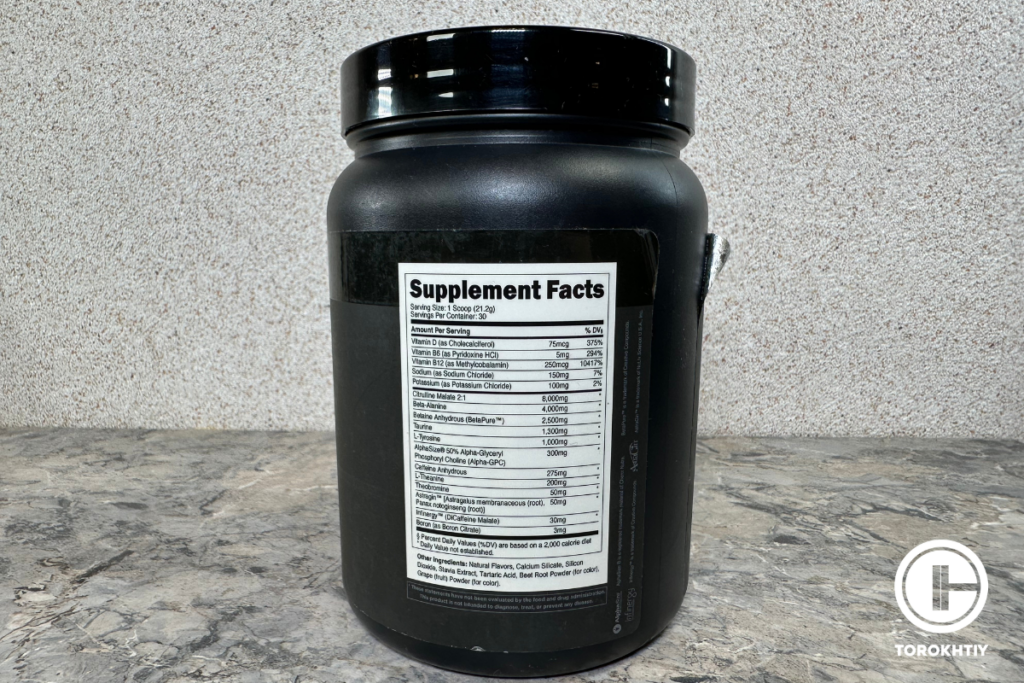
3. Components with potential benefits
Most pre-workouts also contain ingredients with a much weaker scientific support than caffeine, creatine and beta-alanine. These components primarily include citrulline and betaine. However, in order to obtain the potential effects, they must be taken in appropriate dosages:
- The appropriate single dose of betaine is 2.5 g,
- The appropriate dose of citrulline in the form of L-Citrulline should be at least 3 g, while the dosage of Citrulline Malate should be at least 6 g.
If you are only interested in products that can be at least relatively classified as healthy natural pre-workout, choose those that contain a minimum of additional ingredients other than performance-enhancing components (ie caffeine, beta-alanine, creatine, citrulline, betaine).
Promix Pre-Workout
- Best For: Overall Athletic Performance, Muscular Endurance, Reducing Fatigue
- Flavors: Lemon, Mixed Berry, Strawberry Lemon, Cherry Lime
- Caffeine: 200 mg
- Special Ingredients: Beta-Alanine, Taurine, Vitamin B12, Vitamin C
- Package Information: 30 servings per package
- Serving: 9.5 g per 2 scoops
- Recommended By Athletes: Odell Beckham Jr, Kelly Matthews, Alexa Idama
This brand uses the slogan “No Artificial Anything”. Therefore, if this is an important factor for you when choosing a supplement, this product will not disappoint you. The key ingredients are a balanced dose of caffeine from coffee bean extract, as well as beta-alanine.
Promix pre-workout also contains additional ingredients, including taurine, vitamin C and a large dose of vitamin B12. By the way, vegans should pay special attention to this product, because vitamin B12 is not found in plant-based products (taurine may also be of particular interest for vegans).
Also, it is only one of two products in this rating that has certification from a world-recognized third party. However, keep in mind that Certified for Sport® certification is only available for Promix with lemon flavor.
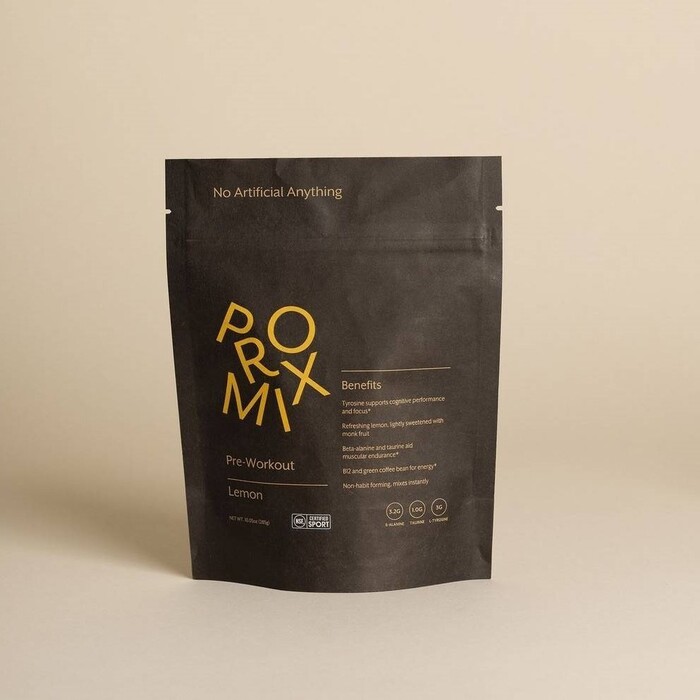
In general, considering the composition and dosage of the ingredients, the availability of recognized certification and the cost of one serving, which is only 1 dollar, this product has very few competitors.
How to take a pre workout before training to get the effects?
In order for your natural pre-workout drink to improve training performance, take it 20-60 minutes before the start of your workout. However, you may need some time to experiment with the specified time range and find your perfect timing.
To get the best taste and texture of your healthy natural pre-workout drink, use the recommendations that are indicated on the packaging of a specific product. Depending on the selected product of a particular brand, the serving size can be very different, so the recommendations for the choice of liquid (water or other drink) and its volume may differ.
Can I make my own pre-workout without additional ingredients?
Yes, but in this case you will have to buy the necessary components separately and choose the right dosages. Also consider that caffeine is mainly sold in capsule or tablet form. Therefore, you may need to mix ingredients like beta-alanine and citrulline in powder form and take caffeine in capsule form.
Keep in mind that well-formulated products from reputable brands may be the best choice. An excellent example is the leader of this rating, albeit adjusted for a high single dose of beta-alanine.
FAQ
What Is A Natural Pre-workout Drink?
Given the fact that the concept of “naturalness” itself is hard to quantify or measure, such products can include those that do not contain artificial sweeteners, colors and other ingredients. Look for products with the fewest “other” ingredients besides caffeine, beta-alanine, and other performance-enhancing components.
What Is The Best Natural Pre-Workout?
The best products include those that contain key performance-enhancing components in the right dosages (adjusted for the individuality of the caffeine dose), but do not contain artificial sweeteners and other ingredients that are not found in nature.
How Can Pre-workouts Help My Performance?
This type of supplement boosts training performance by improving muscular endurance, decreasing the rating of perceived exertion during training, reducing perception of fatigue, as well as improving focus. An additional effect for which many athletes (especially men) take this type of supplement is to increase the pumping effect from high-volume training sessions.
Conclusion
Natural pre-workout supplements are quite controversial, because the very concept of “naturalness” is somewhat conditional, as it is not clearly defined or regulated. However, if you are interested in products with the absence or minimum of additional ingredients of unnatural origin, pay attention to the tips and recommendations we provided in this article.
If you want to go by what we suggest, give the Promix Pre a try. And by what criteria do you choose pre-workouts? Share your thoughts in the comments!
Also read:
- Does Pre Workout Make You Lose Weight
- Does Pre Workout Make You Sweat More
- Is Pre Workout Good for Running
- Can You Take Pre Workout Before Cardio
- Side Effects of Pre Workout
- Creatine vs Pre Workout
- How Long Does Pre Workout Last
- How Much Caffeine in Pre Workout
- Pre Workout vs Energy Drink
- Best Healthy Pre Workout Drink
References:
- CAFFEINE // AIS: https://www.ais.gov.au/__data/assets/pdf_file/0004/1000498/36194_Sport-supplement-fact-sheets-Caffeine-v6.pdf
- International society of sports nutrition position stand: Beta-Alanine // JISSN: https://jissn.biomedcentral.com/articles/10.1186/s12970-015-0090-y
- A Systematic Risk Assessment and Meta-Analysis on the Use of Oral β-Alanine Supplementation // NCBI: https://www.ncbi.nlm.nih.gov/pmc/articles/PMC6520041/
- Niacin // NIH: https://ods.od.nih.gov/factsheets/Niacin-HealthProfessional/
- Caffeine and theanine exert opposite effects on attention under emotional arousal // CSP: https://cdnsciencepub.com/doi/10.1139/cjpp-2016-0498
- Nutrition Recommendations for Bodybuilders in the Off-Season: A Narrative Review // NCBI: https://www.ncbi.nlm.nih.gov/pmc/articles/PMC6680710/
- Silica // ATSDR: https://www.atsdr.cdc.gov/toxfaqs/tfacts211.pdf
- Sodium Citrate // AMS: bit.ly/42VaeFw
- Understanding Food Marketing Terms // EatRight: https://www.eatright.org/health/wellness/nutrition-panels-and-food-labels/understanding-food-marketing-terms
- Chemicals and Materials // CCOHS: https://www.ccohs.ca/oshanswers/chemicals/poisonou.html
- Natural Doesn’t Necessarily Mean Safer, or Better // NIH: https://www.nccih.nih.gov/health/know-science/natural-doesnt-mean-better
- Death by water intoxication // NCBI: https://pubmed.ncbi.nlm.nih.gov/12053855/
- Organic Food in the Diet: Exposure and Health Implications // Annual Review: https://www.annualreviews.org/doi/10.1146/annurev-publhealth-031816-044437#_i18
- CAFFEINE GROUP A // AIS: https://www.ais.gov.au/__data/assets/pdf_file/0003/1001379/Caffeine-Infographic-final.pdf
- β-Alanine dose for maintaining moderately elevated muscle carnosine levels // NCBI: https://pubmed.ncbi.nlm.nih.gov/24389513/
- Photos made by Torokhtiy Media team.
Why Trust Us?
With over 20 years in Olympic weightlifting, strength training, nutrition coaching, and general fitness our team does its best to provide the audience with ultimate support and meet the needs and requirements of advanced athletes and professional lifters, as well as people who strive to open new opportunities and develop their physical capabilities with us.
By trusting the recommendations of our certified experts in coaching, nutrition, and sports training programming, as well as scientific consultants, and physiotherapists, we provide you with thorough, well-considered, and scientifically proven content. All the information given in the articles concerning workout programming, separate exercises, and athletic performance, in general, is based on verified data.
The product testing process is described in more detail here.
Author: Oleksandr Maksymenko
Certified Sports Nutritionist,
MSc Sports Dietetics
Specializing in: Weight management, Fitness / Sports nutrition
Oleksandr is a professional fitness nutritionist certified by the Fitness Professional Association (FPA). He follows the principles of evidence-based dietetics and fosters a healthy relationship with food in his clients, ensuring there are no strict prohibitions on their favorite foods or frequent lapses. His primary goal is not only to achieve results for you but also to sustain them over the long term, all while enjoying tasty and delicious food.



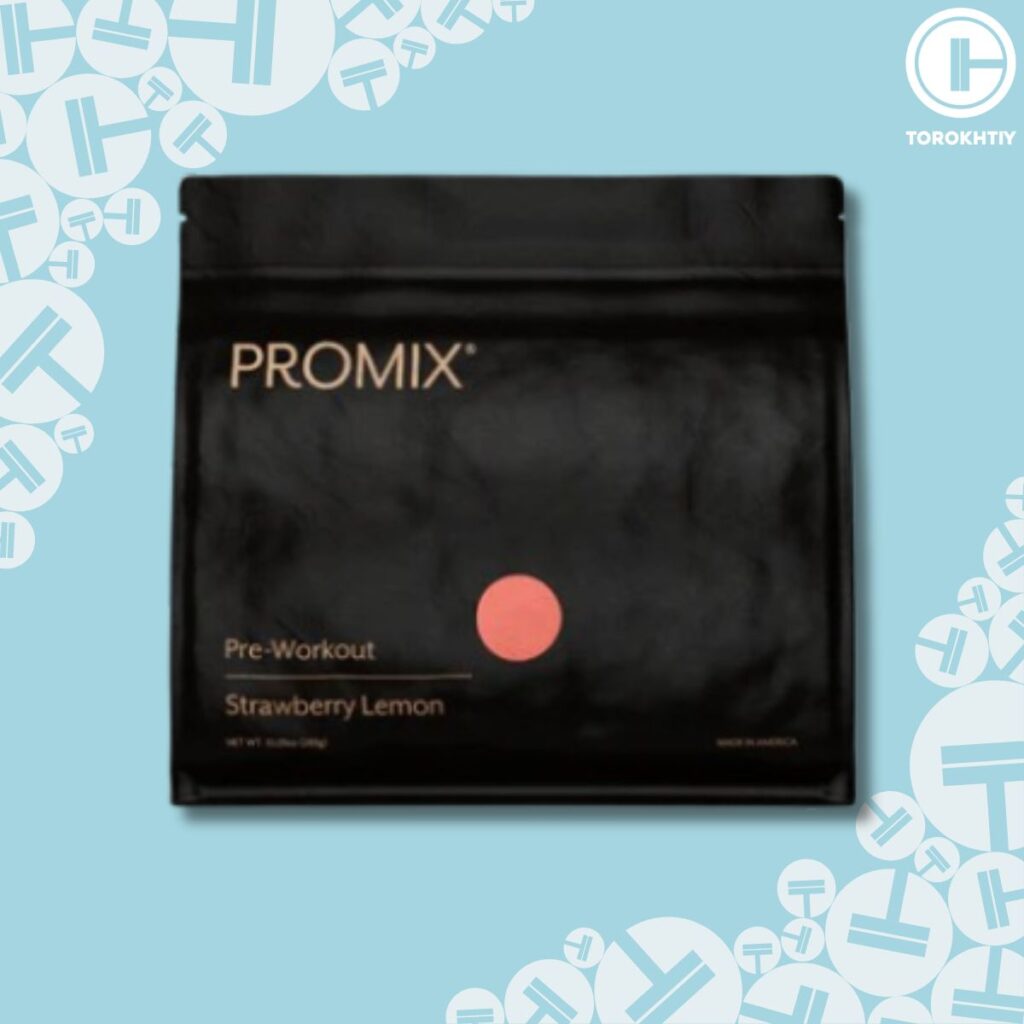
Still have questions after reading our article? Unlock your full potential by engaging with our experts and community! Don’t hesitate — leave a comment below and Oleksandr Maksymenko will provide a personalized answer and insights to help you reach your goals.